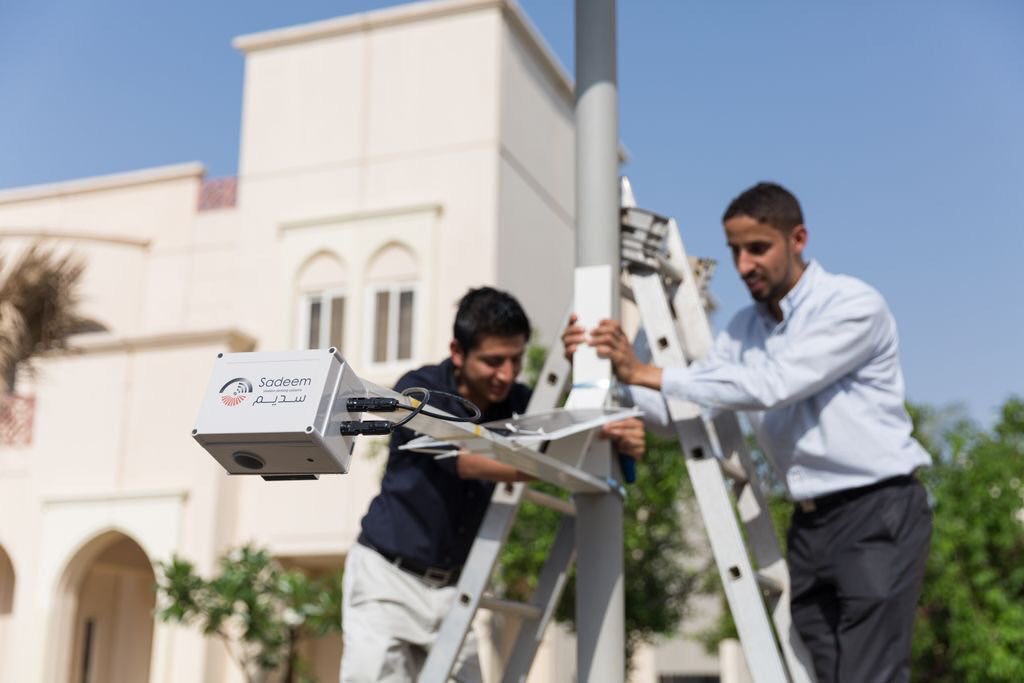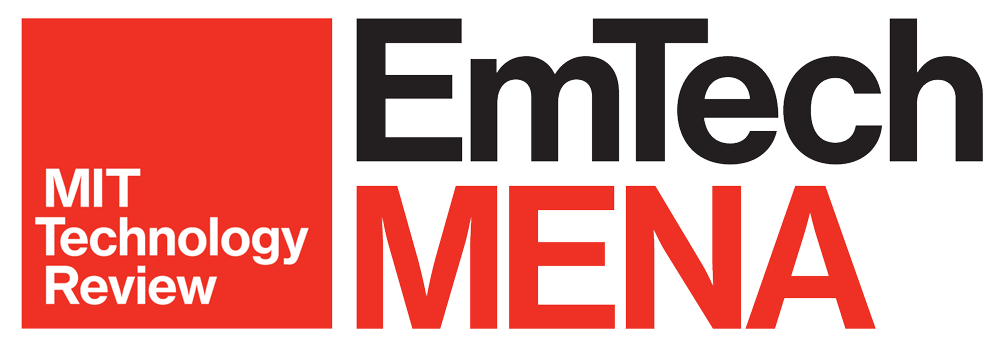
Floods are the most commonly occurring natural disaster in the world, impacting hundreds of millions and causing extreme financial losses every year. The Arab world is equally impacted, as in the year 2014 when floods of Jeddah and the Holy City of Mecca suffered economic losses estimated at more than 100 million USD. In response to these catastrophes and their destructive effects, a group of students and researchers at KAUST developed an early warning system for floods, and turned the project into a start-up that is active regionally and globally as “Sadeem Technology”.
Dr. Esteban Canepa (one of the four original founders of the company) moved to study at the King Abdullah University of Science and Technology – also known as KAUST – in 2009, and after only two months from his move, a wave of heavy rains turned the city of Jeddah and the Holy City of Mecca into a mass of floods and landslides not seen for 27 years. When these floods reached the KAUST campus, Esteban and his colleagues among the university students and staff saw with their own eyes the catastrophic destruction that the flooding left in its wake, leading to the destruction of thousands of cars, personal property, and the loss of dozens of lives.
Esteban says: “Two years before this incident, I had seen similar flooding in my homeland of Mexico, and it left the same level of destruction, and my family and friends suffered severe losses in their finances and properties because of it. That is when I realized that this is a problem that affects people worldwide, and it was important to do something to solve it or reduce its negative effects.”
Esteban then formed a research team with Egyptian Dr. Mustafa Mousa and Yemeni Dr. Ahmad Dehwah, then all students working to complete their doctorates in electrical engineering at KAUST. They shared his interest in the issue of flooding, and worked with the assistance of their advisor at the university, French Dr. Christian Claudel, to develop a joint research project to develop long-distance detection technology capable of predicting such catastrophes and sending warnings before they occur. After some time, the four believed they could transform their research project into a successful business venture.
Esteban says: “According to what I saw in my years of work, there’s a big problem with research projects, in that they never leave the lab, where we spend year after year performing research, studies, and experiments, and then never employed them in a practical fashion. With entrepreneurship, however, it is the complete opposite; it allows individuals to transform ideas into commercial ventures that impact people’s lives.”
Esteban and his colleagues obtained a patent for their near long-distance detection technology they named EQUA. This technology distinguishes itself from other because it is able to monitor two factors simultaneously: first, the rains that create the floods threatening cities; and second, the flow of traffic and vehicles through it, two data points essential for authorities to take into account when implementing life and property saving procedures.
In addition, Sadeem’s detectors can be fixed on lamp posts throughout the city (at a height of five to ten meters above street level) leaving them safe from landslides and flooding. The most important feature, however, is that it doesn’t rely on the city’s electrical grid. Esteban says: “oftentimes, the supply of power is impacted or stopped because of flooding, and therefore the detectors we’re developing work entirely from stored solar energy, a very beautiful technology.”
EQUA’s detectors designed by Sadeem can warn of flooding resulting from rains thirty minutes to six hours before their occurrence, and these warnings – according to studies – have a major role in reducing the losses experienced by landslides. These time periods can be used, for example, to move people off the streets, clear the roads of vehicles, and protect agricultural harvests and livestock by moving them to safe locations, in addition to other preparations that can be taken.
On the way the detectors work, Esteban says: “our colleague Christian would describe cities as semi-living beings, and therefore if we wanted to develop cities that we live in and provide modern means of living, we have to first be capable of observing them and monitoring their actions just as we would a living being. This is what our detectors do, as they’re more like ‘eyes” that stay up through the night watching the city, guarding it, and warning of any imminent danger.”
The company signed its first deal in the Holy City of Medina in the Kingdom of Saudi Arabia, and from there expanded to the United Arab Emirates, Mexico, and the American State of Texas. In May 2018, the early warning system launched by Sadeem was able to warn the Madinat Khalifa area of Abu Dhabi of approaching landslides, reducing their economic and material losses.
Currently, Sadeem is working on a new technology called AURA that will monitor the quality of air, detailing the pollution and harmful gases that are increasing in modern cities. The new air quality detectors have been implemented in Medina and many other cities where the flood detectors had been implemented, and they should help provide data on air pollution levels in order to help local authorities in handling this issue.
Esteban says: “One of the biggest challenges we’ve faced – in my opinion – is proving our ability to implement major projects, such as installing our system in major cities with millions of people, and this is what we want to ultimately achieve.” They have managed to overcome this challenge the moment they were offered a contract to work in Medina, which was followed by them winning the GITEX prize for start-up companies in Dubai in 2017, with a prize valued at 150,000 USD. These two important achievements were a turning point for the company, in Esteban’s eyes, as they were able to prove the capabilities of Sadeem’s technological innovations to the investment market regionally and worldwide.
Currently, Sadeem is looking to employ its technologies to advance several Arab and global cities, as the company’s goal is not only to install detection systems and protect people from catastrophes, but to provide technologically advanced systems that improve the quality of life in cities and offer its governors important actionable data. This is the goal that this start-up company, three years after launch, is still on its way to achieve.
This article was originally published in Arabic on technologreview.ae. You can read it here:
سَدِيم: تقنية سعودية للتحذير من الفيضانات والسيول قبل وقوعها
